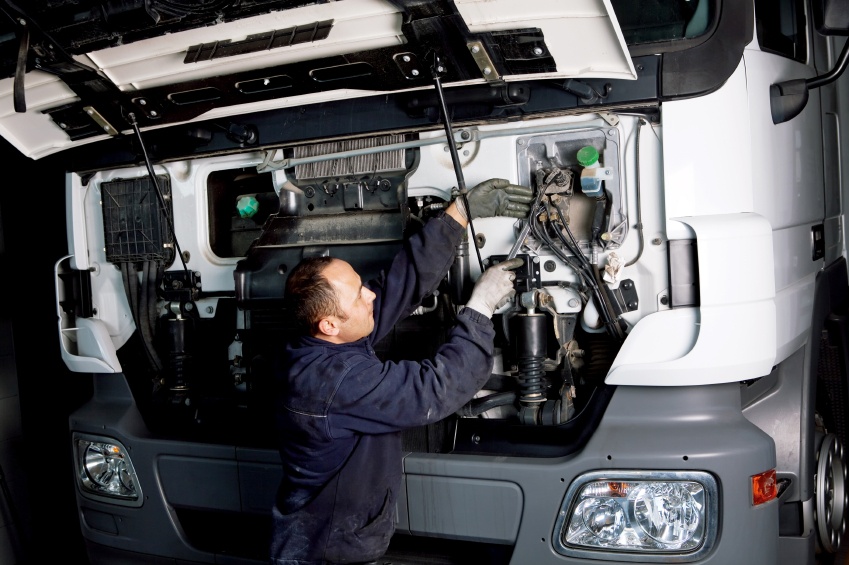 Anyone who owns or manages a fleet of trucks will eventually be faced with the decision to sell them or attempt to fix them. Trucks are undoubtedly sturdy machines yet they can’t outrun the march of time.
Anyone who owns or manages a fleet of trucks will eventually be faced with the decision to sell them or attempt to fix them. Trucks are undoubtedly sturdy machines yet they can’t outrun the march of time.
Let’s take a look at a few tips that will help you determine if your trucks should be fixed or if they should be sold.
Making the Decision to Fix
When debating whether to fix your trucks or sell them, the decision is often simplified by economics. A company may just decide that it just can’t afford expensive repairs and opt to sell.
It’s worth noting here that credit availability for truck repairs has drastically increased over the past year. Part of the increased availability is due to the rise in freight demand. Data from the Transport Capital Partners’ Business Expectation Survey shows that 86 percent of respondents had access to credit at a reasonable interest rate. This improved access to funds has simplified decision making for many fleet managers who would otherwise be torn between repairing and selling their trucks.
In many instances, it is prudent to perform a cost analysis of the truck’s – or fleet’s — life cycle. The ideal replacement time frame occurs when the lowest cost segment of the truck’s life cycle occurs and when the truck’s productivity has been maximized. Build a life cycle spreadsheet to help determine the perfect time for repairs or a total replacement.
The spreadsheet should contain an array of factors including the purchase cost of the vehicle, interest costs for capital expenses, estimated maintenance and operation costs, the vehicle’s depreciation rate and the inflation rate for altering life cycle maintenance and operating costs. Life cycle costs will likely start to tick upward around the fifth or sixth year on forward. At this point, it is prudent to repair the vehicle.
Deciding to Sell
In many instances, a fleet manager may not have enough cash on hand for repairs and decide to sell. If you’ve found yourself in that situation, be sure to take a close look at your own maintenance data to identify trends where expenses drastically increase.
If you are able to accurately predict the truck’s depreciation rate, operational expenses and costs of maintenance, you will have a collection of data that helps you determine if the truck is a “money pit” for repairs or if it will provide a solid return if sold in the near future. When in doubt, lean on a fleet consultant to help you determine the calculations that are most important for your vehicles and provide a slew of truck life cycle data that spans applications and industries. With this insight, you will be more able to determine if repairing or selling is the best option.
Other Factors to Consider
As you attempt to determine whether selling or repairing your trucks is the proper decision, it is imperative that you analyze a series of factors. These include hours versus miles. Engine hours are a solid indicator of the vehicle’s life cycle. At the same time, low mileage isn’t always a solid means of identifying wear and tear and/or the truck’s estimated lifespan as certain applications require that the engine is in use throughout the day. If the vehicle travels merely 10,000 miles per year yet the engine operates with a high frequency, you should place less emphasis on the mileage.
Another key factor is the resale market. There is a steep decline in value that typically occurs in the first couple of years. After this time period, the vehicle’s rate of depreciation tends to slow. However, the resale market is not as predictable. The market can transition between soft and robust in just a few months. Consider the state of the market before making the decision to sell.
Take a close look at the dynamics of the existing market. It might be strong for one kind of vehicle and weak for another. If it is soft, repairs are likely to be more cost efficient. If the market is strong, it likely makes sense to shorten the vehicle’s life cycle and sell for the high resale value.
Consider the vehicle’s technology as well. Newer vehicles have “fuel sipping” engines along with aerodynamic body structures. A gap of five years can make a remarkable difference in fuel efficiency. If your fleet is old, it might make financial sense to sell and upgrade to newer vehicles that provide ample fuel cost savings.
{{cta(‘1c0167df-e458-4b6f-879d-c726d8125d46’)}}